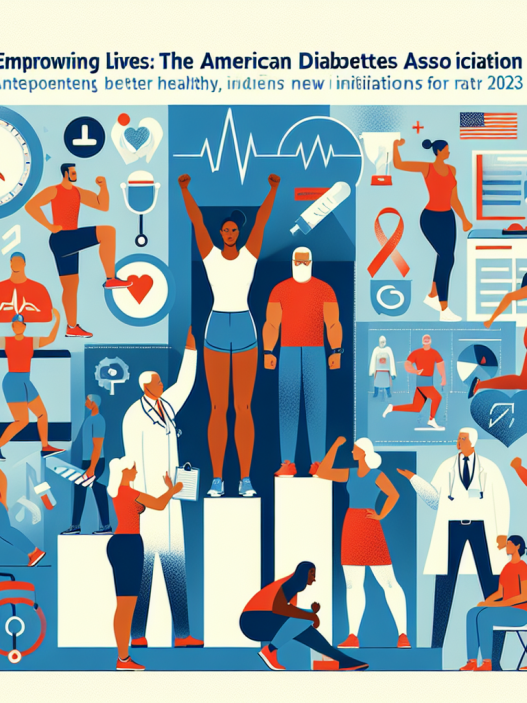[ad_1]
Navigating pregnancy is a beautiful journey, but for many moms-to-be, the experience can be complicated by gestational diabetes. This condition not only affects physical health but can significantly impact mental well-being. In this blog, we will explore the intricate relationship between gestational diabetes and mental health, and provide effective coping strategies tailored for expecting moms. By arming yourself with knowledge and support, you can navigate this challenging time with confidence.
Understanding Gestational Diabetes and Its Effects on Mental Health
Gestational diabetes occurs when your body cannot produce enough insulin during pregnancy, causing high blood sugar levels. Approximately 2-10% of pregnant women encounter this condition, making it crucial for expecting moms to understand its implications. The diagnosis can evoke a range of emotions, including anxiety, fear, and stress. Understanding how these feelings arise is the first step toward managing them effectively.
The psychological impact of gestational diabetes is profound. Many expecting mothers experience guilt about their condition, often believing they have failed in some way, despite having little control over its onset. This negative self-perception can lead to increased anxiety and depression, exacerbating the emotional toll of pregnancy. Awareness of these mental health challenges is vital for developing healthy coping mechanisms.
The Impact of Stress and Anxiety on Pregnancy Health
Managing stress and anxiety is essential for the health of both mother and baby. Research suggests that high levels of maternal stress can lead to adverse outcomes, including premature birth and low birth weight. Additionally, prolonged anxiety can impair immune function and significantly affect overall well-being. Consequently, tackling these emotional hurdles is not only beneficial for mental health; it’s vital for ensuring a healthier pregnancy.
Moreover, the stress of managing diabetes—such as constantly monitoring blood sugar levels, adhering to dietary restrictions, and attending frequent check-ups—can compound feelings of overwhelm. It is important for expecting moms to recognize the signs of stress early and seek appropriate strategies to mitigate its impact. Balanced emotional health can foster a positive environment for both mother and child.
Coping Strategies for Expecting Moms Dealing with Gestational Diabetes
-
Educate Yourself: Knowledge is power. Understanding gestational diabetes, its causes, and how to manage it can help alleviating fears and anxieties. Attend workshops, participate in support groups, and read literature about gestational diabetes. Improved knowledge about your condition can empower you to take charge and make informed decisions.
-
Mindfulness and Relaxation Techniques: Engaging in mindfulness practices, such as meditation and yoga, can help manage stress and anxiety effectively. Simple breathing exercises or guided meditations can create a sense of calm, encouraging a positive mental state. Setting aside time daily for these practices can help ground you despite the fluctuating emotions of pregnancy.
- Nutritional Counseling: Working with a registered dietitian familiar with gestational diabetes can greatly benefit your mental health. Customizing a meal plan not only helps regulate blood sugar but can also alleviate worries surrounding dietary choices. Nutritional guidance gives you clear direction, making you feel more in control.
Building a Supportive Network for Emotional Well-being
-
Connect With Others: Establishing connections with other moms facing similar challenges can be invaluable. Seek out support groups (either in-person or online) focused on gestational diabetes. Sharing your experiences and hearing others’ stories can create a sense of community, fostering emotional resilience.
-
Lean on Friends and Family: Don’t hesitate to reach out to your loved ones for support. Friends and family can provide much-needed emotional backing and practical help, such as accompanying you to appointments or assisting with meal preparations. Strengthening your social ties can help reduce feelings of isolation and stress.
- Professional Help: Sometimes, the support from friends and family may not suffice. Seeking professional counseling or therapy can be beneficial. Mental health professionals can guide you through your feelings and provide tailored coping strategies for managing the emotional burden of gestational diabetes.
Recognizing When You Need Professional Help
It is essential to know when to seek professional help. If feelings of sadness, irritability, or anxiety persist or worsen, consider reaching out to a mental health professional. Indicators may include difficulty concentrating, loss of interest in activities you once enjoyed, changes in appetite, or sleeplessness. Recognizing these signs early can lead to appropriate interventions, ultimately enhancing your quality of life.
In addition, postpartum mental health is equally crucial. Expecting moms must equip themselves with tools not just for the duration of pregnancy but for the transition to motherhood. Postpartum depression and anxiety can affect new mothers and should be addressed proactively. Ensuring a supportive network during this transition period is critical.
Healthier Lifestyle Changes to Improve Mental Health
Incorporating healthy lifestyle choices can vastly improve mental well-being. Regular physical activity is not only vital for managing gestational diabetes but also can enhance mood and decrease stress. Light activities such as walking, swimming, or prenatal yoga can keep you healthy while packing a mental health punch.
Maintaining a balanced diet rich in whole grains, vegetables, and lean proteins can nourish both your body and mind. Consuming a diet rich in omega-3 fatty acids (found in fish like salmon) and antioxidants (found in fruits and vegetables) can have mood-boosting properties. Moreover, staying hydrated, avoiding excessive caffeine, and monitoring sugar intake can help you feel your best.
Finally, prioritizing sufficient sleep is fundamental for mental clarity and emotional regulation. Monitor your sleep hygiene by creating a restful environment, establishing a calming routine, and ensuring comfort as your body changes. Quality rest is crucial for maintaining emotional balance during pregnancy, especially when managing gestational diabetes.
Conclusion: Embracing Your Journey with Gestational Diabetes
In conclusion, gestational diabetes can pose challenges for expecting moms, but it doesn’t have to overshadow the joy of this transformative experience. By acknowledging the mental health implications of managing this condition and employing tailored coping strategies, you can empower yourself to thrive. Remember always to seek knowledge, build a supportive network, and prioritize mental and physical wellness. Your journey is unique, and with the right tools, you can navigate pregnancy with strength and resilience. Embrace this time and allow yourself the grace to experience all its ups and downs—your well-being matters.
[ad_2]






















